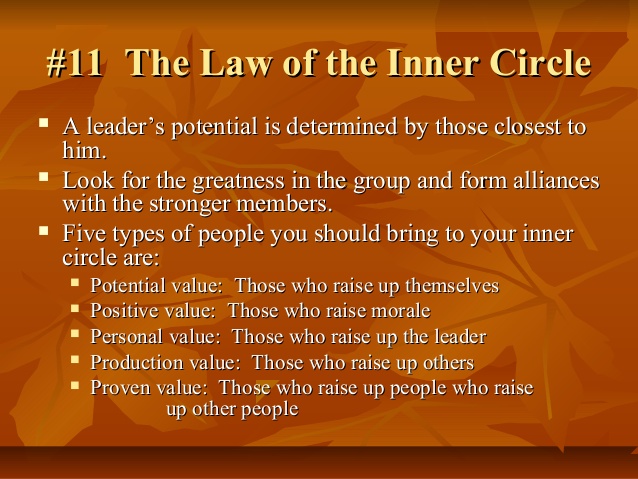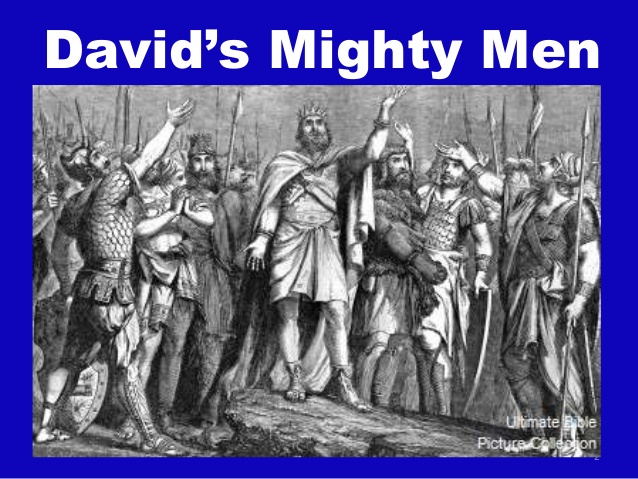Click here to return to Blog Post Intro

David & The Law of the Inner Circle
In 1 Chronicles 11 & 12, David pulled together the core people who made him great. Let’s take a closer look at how he did that:
1. He started building a strong inner circle before he needed it.
David began building his team long before he was crowned king. 1 Chronicles 12:14 emphasizes how many of the warriors who flocked to David were leaders. He didn’t attract just anyone; he attracted strong leaders.
2. He attracted people with varied gifts.
David attracted men of diverse abilities. Take a look at his team—ambidextrous bowmen, slingers, and spearmen—many mighty men of valor, and hundreds of captains. With the help of these men, David felt prepared for any challenge.
3. He engendered loyalty.
David’s followers displayed incredible loyalty to him throughout his life. In the early days, three of his men risked their lives to get him some water from his favorite well in Bethlehem (was that the Ozarka well?). Decades later, his men stayed close to him even when it looked like Absalom would crush his father (2 Samuel 15:21). Those closest to David always seemed willing to put their lives on the line for him.
4. He delegated authority based on ability.
David continually gave authority to others. He designated Joab as commander of the army, and he felt equally secure in giving others civil authority (1 Chronicles 18:14-17). Of course, delegation always entails risk—as demonstrated by Joab’s unilateral decision to kill Abner (2 Samuel 3:22-30). But Out of This World Leaders risk delegation in order to reach the highest levels of leadership.
In forming your Inner Circle, look for these traits in the people you depend on most:
I – Influential: Everything begins with influence. In 1 Chronicles 12:23-37, more than 1200 leaders are mentioned among the list of warriors who came to David!
N – Networking: Who people know is just as important as what they know. When David hid from Saul, he was able to escape with the help of those who cared about him.
N – Nurturing: People who care about each other take care of each other. Jonathan is the best example of a nurturer in David’s life. He loved David unconditionally, encouraged him, and guarded his life.
E – Empowering: David’s mighty men enabled him to achieve much more than he could on his own. Together, they accomplished incredible things.
R – Resourceful: When David wanted to conquer Jerusalem, he offered to make the man who led the charge chief of his army (2 Samuel 5:6-10)—and Joab was given that authority.
C – Character-driven: People of weak character in David’s inner circle cost him dearly. But people of strong character often steered him out of trouble.
I – Intuitive: Seek members for your inner circle who have learned to trust their instincts.
R – Responsible: Those closest to you should never leave you hanging. David’s companions made his cause their own.
C – Competent: You can’t get anything done if your team members can’t do their jobs. The skill of David’s people made him great.
L – Loyal: David’s people stuck with him even to death. Don’t keep anyone close to you whom you cannot trust.
E – Energetic: Energy covers a multitude of mistakes. Without it, David and his men never would have survived in the wilderness, nor would they have made the nation secure from its enemies.
When God wants a leader to do something for Him, He provides that leader with the individuals to get the job done. That was true for David, and it will be true for any Out of This World Leader. May your Inner Circle keep you from “Lone Ranger Leadership” as you shoot for the stars!

